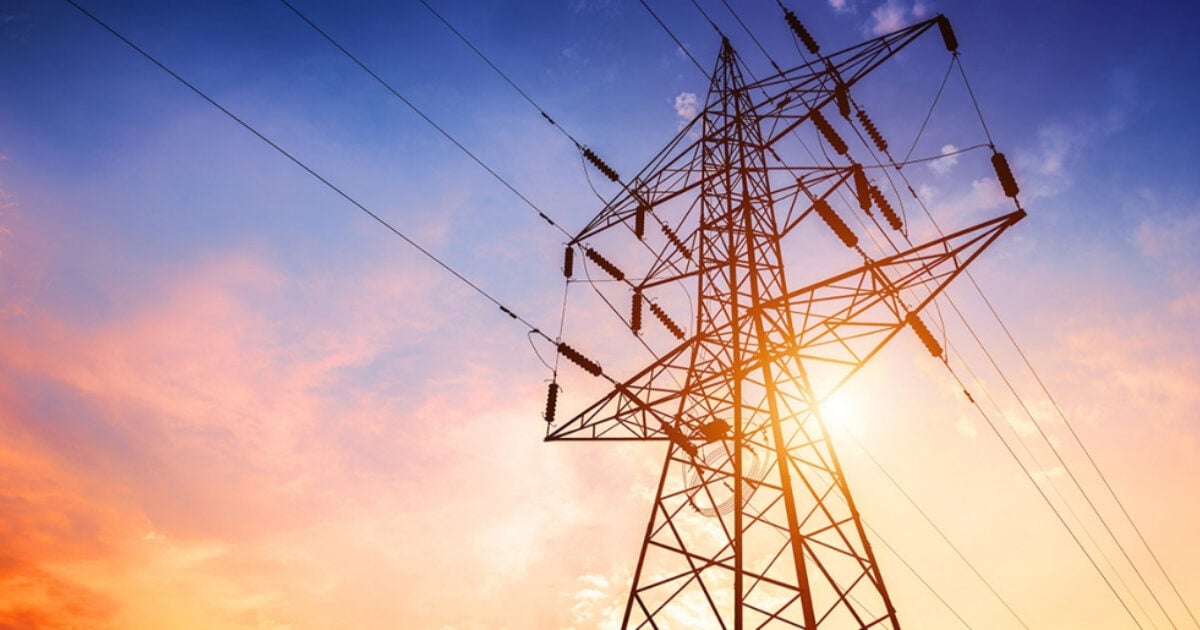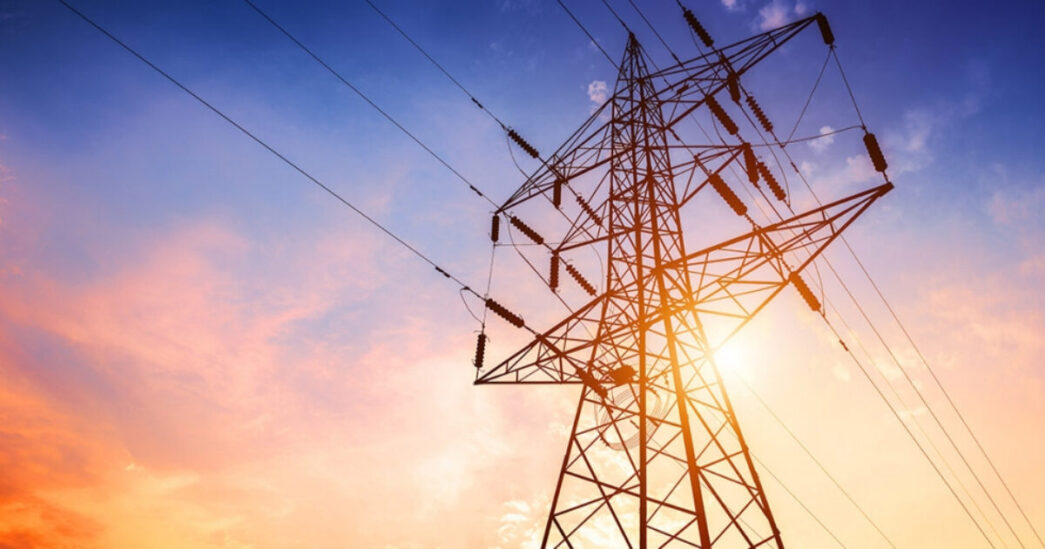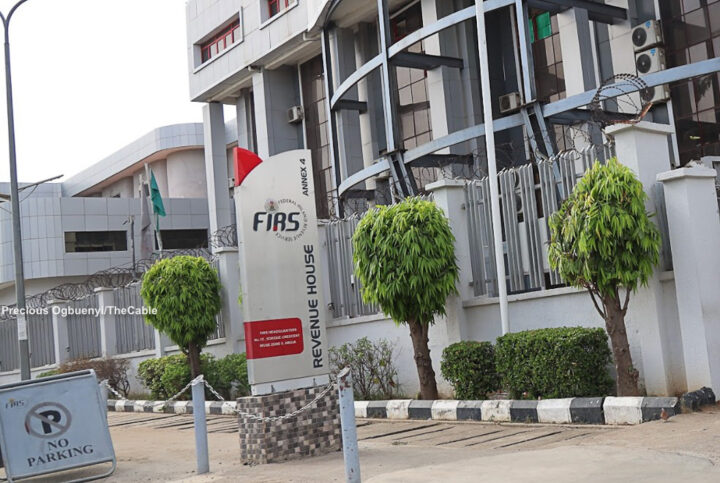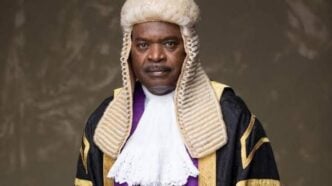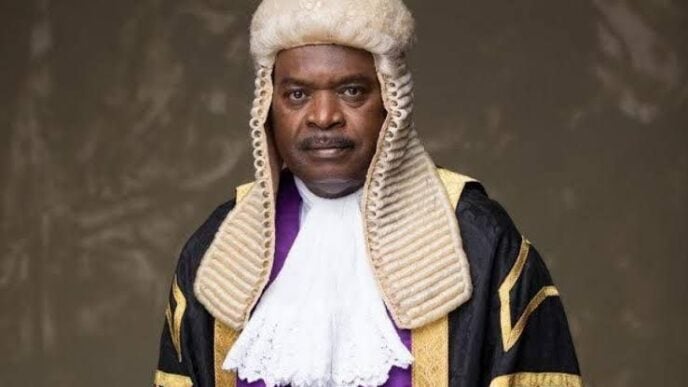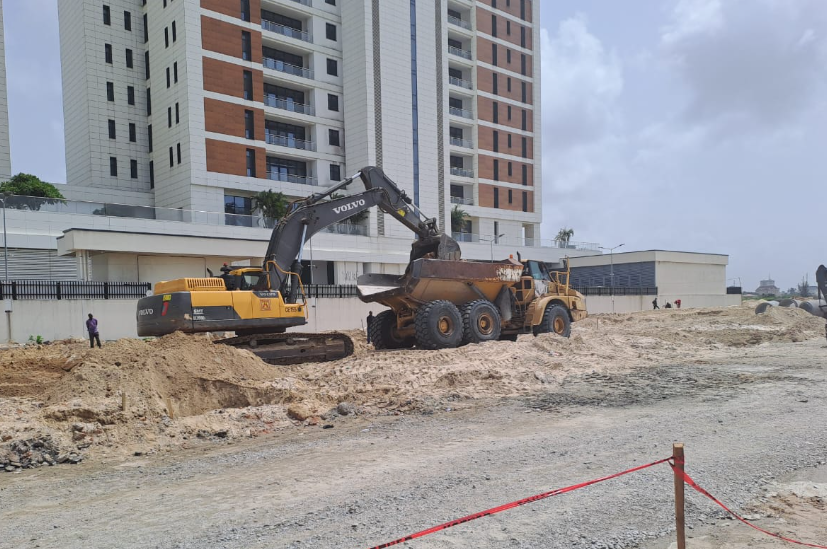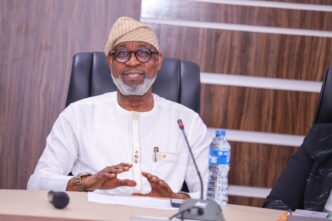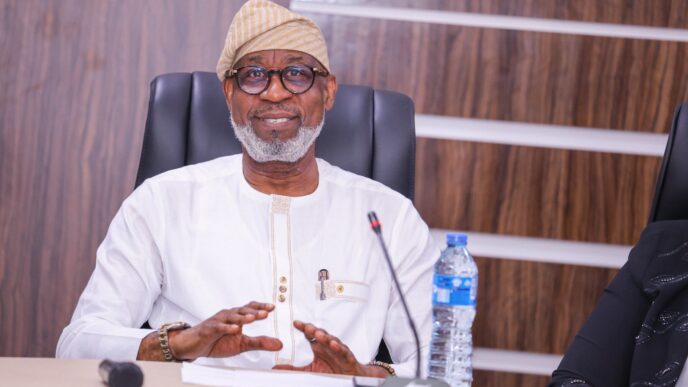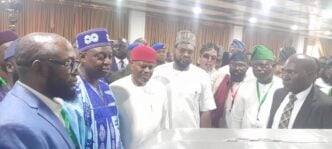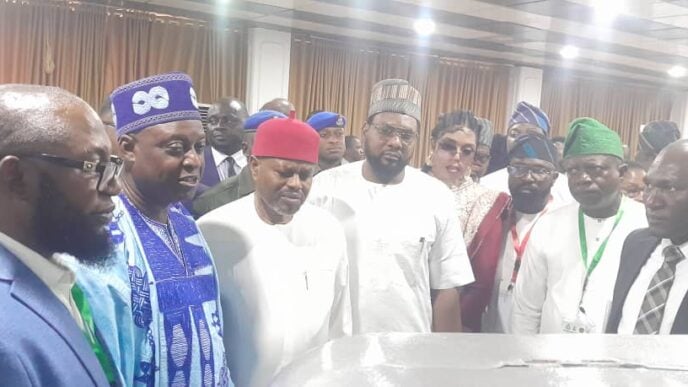The senate has commenced a legislative process to overhaul the Electricity Act, 2023, with the passage of the Electricity Act (Amendment) Bill, 2025, for second reading.
The bill, sponsored by Enyinnaya Abaribe, senator representing Abia south, seeks to address the lingering crisis in Nigeria’s power sector by clarifying regulatory roles, tackling vandalism, and streamlining governance across the electricity value chain.
Presenting the bill during plenary on Tuesday, Abaribe, who chairs the senate committee on power, said the proposed amendment was a response to emerging challenges in the sector following the devolution of electricity powers to states in the 2023 constitution.
Abaribe warned that the Nigerian Electricity Supply Industry (NESI) is “hanging on a cliff” due to operational bottlenecks and a sector-wide debt crisis running into trillions of naira.
Advertisement
“This bill addresses the reality that the Nigerian power sector is hanging on a cliff,” he said.
“With trillions of naira in debts and persistent sabotage, we must act fast to prevent total system breakdown.”
He listed key provisions in the bill including the criminalisation of electricity infrastructure vandalism, clarification of regulatory transitions from the Nigerian Electricity Regulatory Commission (NERC) to state regulators, restructuring of the Power Consumer Assistance Fund, and the formal recognition of institutions like the National Electric Power Policy Council and the Forum of Electricity Regulators.
Advertisement
SENATORS CALL FOR TOUGHER PENALTIES, SUBSIDY REFORM
Several lawmakers backed the amendment and called for stronger punitive measures to curb power theft and sabotage.
Mohammed Monguno, senator representing Borno north, said the bill’s significance rivals that of the Petroleum Industry Act.
“This amendment is revolutionary in nature, akin to the Petroleum Industry Act that this parliament amended with a view to revolutionising the industry. This amendment equally seeks to do that,” Monguno said.
Advertisement
“Against the backdrop of the fact that, as a result of the amendment of the constitution, bringing power from the legislative exclusive list to the concurrent legislative list, states can now also legislate on matters concerning electricity, and this has brought conflict between laws that were enacted at the state level and laws that are existing at the national level.
“Essentially, what this bill seeks to do is to bring it in concomity with the constitution.”
Solomon Adeola, senator representing Ogun west, raised concerns about unsustainable subsidies and the sabotage of electricity projects by contractors.
“Over the years, so many people have taken advantage of this particular sector, and the federal government being the sole generator and distributor of power in Nigeria,” he said.
Advertisement
“As we speak, the indebtedness of the federal government to these contractors is running into billions and millions of dollars, and that is why any attempt by the federal government to remove subsidy from this sector, is always met with a huge cry by the general populace.
“And this has been a result of the inconsistency we have experienced in this particular sector.”
Advertisement
‘PRIVATE OPERATORS FAILING, INFRASTRUCTURE OUTDATED’
Yunus Akintunde, senator representing Oyo central, said the licensing of GenCos and DisCos without adequate transmission infrastructure is part of the sector’s problem.
Advertisement
“If you look at transmission infrastructure, they are outdated and ineffective,” Akintunde said.
“I have always said that government money should not be used to buy transformers. These are private businesses.”
Advertisement
Garba Maidoki, senator representing Kebbi south, expressed frustration over tariff hikes and the lack of accountability from power companies.
“None of the generating companies have paid NNPC for the gas they have taken for the last five years,” he said.
“This gas belongs to government. If we deduct the cost of gas from the GENCOS, from what they are owing federal government, there is no owing at all. I want us to be clear.
“If they do not pay for the gas they are generating this electricity, then where would the government get the money to pay them for the service they have rendered.
“We need to take this thing holistically. Nigerians should not be made to pay for incremental charges frequently.”
BILL HEADS TO COMMITTEE FOR FURTHER WORK
In his remarks, Godswill Akpabio, president of the senate, commended Abaribe and the power committee for initiating the amendment.
“Without electricity, there is no way we can have industrial growth in the country,” Akpabio said.
He expressed hope that the bill would address public concerns during the public hearing phase.
The bill has been referred to the senate committee on power, which has been given six weeks to report back.
